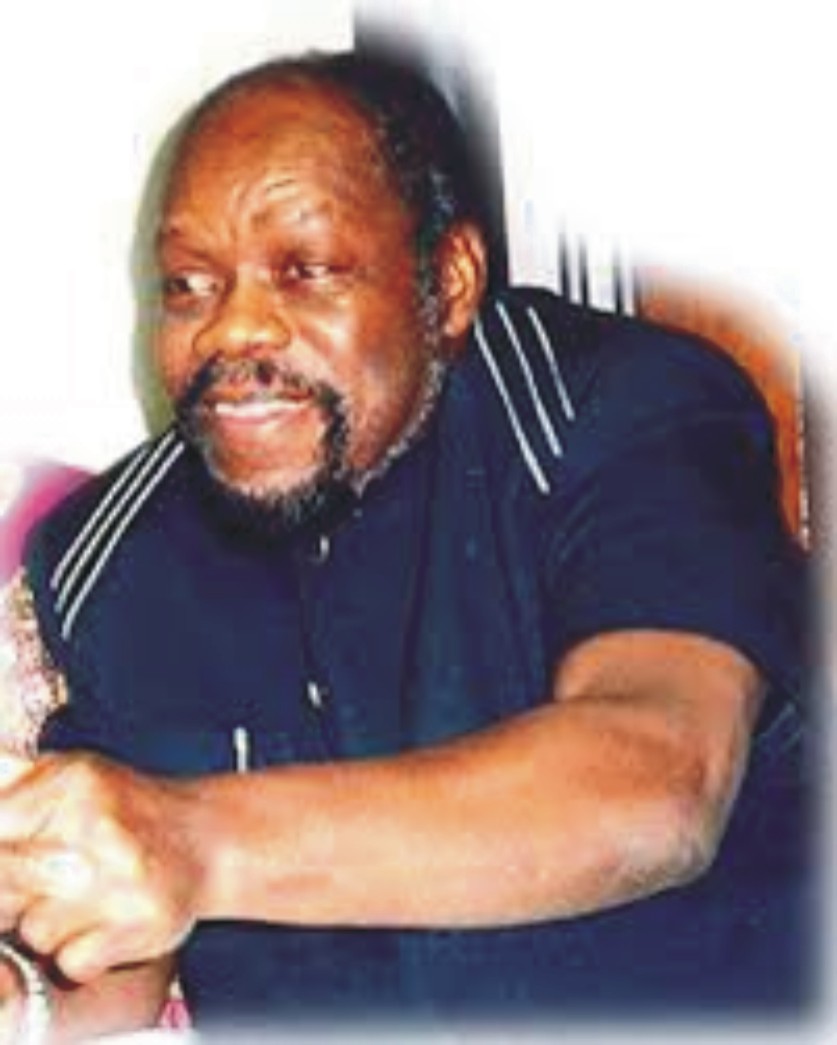
The issue of Biafra and the blame game about who provoked it was unnecessarily raised again recently when President Goodluck Jonathan paid a private visit to General Theophilus Danjuma (rtd) at his Abuja residence.
Commending Jonathan for the sportsmanly manner he handled his electoral defeat by General Muhammdu Buhari (rtd) whom he congratulated even before the final scores were released, the former Defence Minister reportedly said that if General Chukwuemeka Odumegwu Ojukwu, had conceded victory to the Federal troops when Enugu fell, Nigeria would have been saved “one full year of bloodshed.
It is not important to question Danjuma on his Arthmetic and how he came about only “one year” of hostilities from the fall of Enugu to the end of the war.
Relevant to us now is why Danjuma had to blame Ojukwu for a war he and his fellow Northern conspirators provoked and executed.
Forty-five years since the war ended, Ndigbo and other brutalized Easterners that survived it have put the matter behind them and would resent any irreverent stoking of the dying frame by people who should never raise the Biafra issues at all.
Danjuma probably has forgotten that his treacherous act in supervising the arrest, torture and killing of his Commander-in-Chief, General Aguiyi Ironsi and his faithful host at Ibadan Lt-Col. Francis Fajuyi, was a major contributor to the start of the war which Danjuma’s Nigeria waged against Ojukwu’s Biafra.
Following the senseless massacre of Easterners in the North and later in the West, survivors retreated to their home in the East to leak their wounds and rue their misplaced trust of fellow compatriots with whom they had lived happily together for decades.
Yes, there was a military coup of January 15, 1966. Then a counter coup of July 29, 1966, in which Nigerian soldiers killed themselves and some prominent civilians. Danjuma was a junior officer, a captain, later promoted Major, during the unfortunate slaughters among fellow soldiers in January-July period of 1966.
He is the least qualified to talk about Ojukwu and the war because of the ignored role he played.
Let’s take him back to history: In his book “The Nigerian Civil War” an expatriate, John de St. Jorrewrote, on Page 68 thus: “Finally Major Danjuma (second in Command of the 4th Battalion) took some of his men upstairs, confronted and questioned the Supreme Commander, saluted him and ordered his arrest. The General was led downstairs to join others. The three captives (the Western Governor, Fajuyi, who with great gallantry refused to leave his guest and Commander, and Ironsi’s ADC) were now stripped and their hands tied behind their backs with wire. They were flogged, tortured and then put in separate police vans. The captives were ordered out and led along a footpath off the right side of the road.
“These Northern officers and man beat and tortured the captives so badly that their bodies were swollen and bleeding profusely – the Supreme Commander and the Governor, who were almost dead by now, were separately finished off by a few rounds of machine-gun fire”.
Another Chronicling of Danjuma’s duplicitous role can be seen in “The Nigerian Revolution and the Biafra War” by Alexander A. Madiebo on page 85/86: “Ironsi’s Air Force ADC, Captain Nwankwo, who was with Ironsi at the time of his death, later told us the story in Enugu of how the General died.
“According to Nwankwo, at 0630hrs on the 29the of July, 1966, ironsi, Fajuyi, the Governor of Western Nigeria and himself were arrested at Government House Ibadan by Northern troops under the command of Captain Danjuma. Colonel Hilary Njoku, who was also present, escaped with multiple bullet wounds.
“The troops used to effect the arrests, were those detailed to protest the General duirng his tour. The captives were driven to an isolated jungle just outside Ibadan. By the time they got there, the three prisoners had been so thoroughly beaten that the older two-Ironsi and Ajuyi – could hardly stand up. Shortly after, Fajuyi was shot and then Ironsi…”
The kidnapping and execution of Ironsi created a vacuum in the leadership of the military and Nigeria was practically in anarchy. Nobody was courageous enough to take the responsibility of murdering the Supreme Commander so there was no leader in Nigeria for four cliff-hanging days – July 29 to August 1, 1966, when a timid “I, Y Gowon” announced himself as new Leader of the country. Let Danjuma and cohorts know that the death of Ironsi, especially, set the ball rolling for the war which he now blames Ojukwu and Biafra who were on the defensive.
Let’s not be reminded of painful events which we have labored to forget. Danjuma should choose other topics to talk about and never again mention Biafra and its leadership. He should emulate his surviving co-consporators whose conscience advises them to lie low if the cannot come out openly to say sorry to the badly treated Easterners and, especially Ndigbo.
About The Author
You may also like
-
THAT HURRIED JUDGEMENT ON NNAMDI KANU AND THE FATE OF NDIGBO IN NIGERIA: -THE YORUBA CONNECTION/AGENDA
-
IT SHALL END IN PRAISE. By Willie Amadi My brother MNK,
-
WILY WILLIE AND HIS OBSESSION WITH ENTRACO By Jones Onwuasoanya
-
OPEN LETTER TO DISTINGUISHED SENATOR HOPE UZODIMMA,
-
Chief Charles Orie: A Proven Servant-Leader Poised to Redefine Imo’s Future By Emeka Nwachukwu (IHO Ikeduru)
